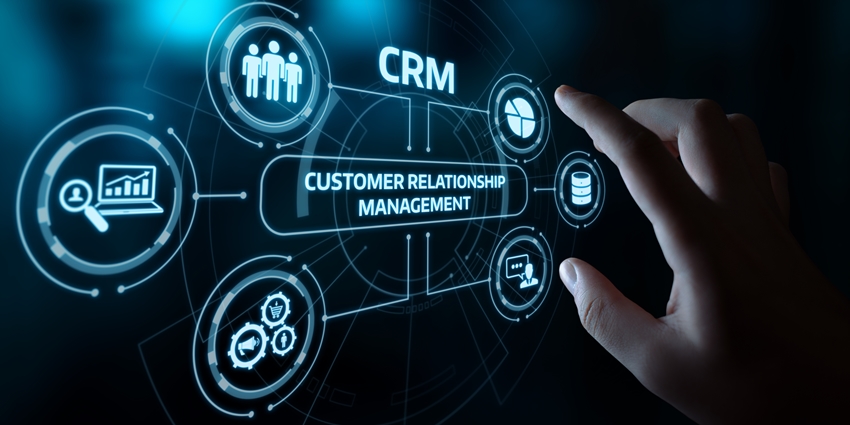In today’s fast-paced business landscape, staying ahead of the competition requires more than just a solid product or service. It demands a deep understanding of customer needs, preferences, and behaviors. This is where Agile software CRM (Customer Relationship Management) comes into play. Agile CRM is a cutting-edge approach to managing customer interactions, designed to help businesses respond quickly to changing market conditions and customer demands. In this article, we will delve into the world of Agile software CRM, exploring its benefits, features, and best practices for implementation.

What is Agile Software CRM?
Agile software CRM is a customer relationship management approach that incorporates the principles of Agile development methodologies, such as Scrum and Kanban. It emphasizes flexibility, collaboration, and continuous improvement in managing customer interactions. Agile CRM combines the traditional CRM functions, such as contact management, sales, and marketing automation, with the adaptive and iterative nature of Agile methodologies. This allows businesses to respond rapidly to changing customer needs, priorities, and market conditions.
Benefits of Agile Software CRM
The benefits of Agile software CRM are numerous and significant. Some of the most notable advantages include:
- Improved Customer Satisfaction: Agile CRM enables businesses to respond quickly to customer feedback, queries, and concerns, leading to enhanced customer satisfaction and loyalty.
- Increased Agility: Agile CRM allows businesses to adapt rapidly to changing market conditions, customer needs, and priorities, ensuring they stay ahead of the competition.
- Enhanced Collaboration: Agile CRM fosters cross-functional collaboration between sales, marketing, and customer support teams, ensuring a unified customer experience.
- Data-Driven Decision Making: Agile CRM provides real-time insights and analytics, enabling businesses to make informed decisions based on data-driven insights.
- Reduced Costs: Agile CRM automates many routine tasks, reducing manual errors and minimizing the need for unnecessary software customization.
Key Features of Agile Software CRM
Agile software CRM typically includes the following key features:
- Contact Management: A centralized repository for storing customer contact information, interactions, and history.
- Sales Automation: Tools for automating sales processes, such as lead scoring, sales forecasting, and pipeline management.
- Marketing Automation: Features for automating marketing campaigns, including email marketing, social media management, and lead generation.
- Customer Support: Tools for managing customer support requests, including ticketing systems, knowledge bases, and chatbots.
- Real-Time Analytics: Dashboards and reports providing real-time insights into customer behavior, sales performance, and marketing effectiveness.
Best Practices for Implementing Agile Software CRM
To ensure a successful implementation of Agile software CRM, follow these best practices:
- Define Clear Goals and Objectives: Establish specific, measurable, achievable, relevant, and time-bound (SMART) goals for your Agile CRM initiative.
- Assess Your Current CRM Landscape: Evaluate your existing CRM systems, processes, and data to identify areas for improvement.
- Choose the Right Agile CRM Tool: Select a tool that aligns with your business needs, is scalable, and provides seamless integration with existing systems.
- Develop a Cross-Functional Team: Assemble a team with representatives from sales, marketing, customer support, and IT to ensure a unified approach to Agile CRM.
- Provide Ongoing Training and Support: Offer regular training and support to ensure users are comfortable with the Agile CRM tool and can maximize its potential.
Real-World Examples of Agile Software CRM
Several businesses have successfully implemented Agile software CRM, achieving significant benefits and returns on investment. For example:
- Salesforce: A leading CRM provider, Salesforce uses its own Agile CRM tool to manage customer interactions, sales, and marketing efforts.
- HubSpot: A marketing, sales, and customer service platform, HubSpot employs Agile CRM principles to deliver personalized customer experiences.
- Zoho: A cloud-based software company, Zoho uses Agile CRM to manage its customer relationships, sales, and marketing efforts across multiple products and regions.
Frequently Asked Questions (FAQs)
Q1: What is the primary difference between traditional CRM and Agile CRM?
A1: Agile CRM incorporates Agile development methodologies, such as Scrum and Kanban, to provide a more flexible and adaptive approach to managing customer interactions.
Q2: Can Agile CRM be implemented using existing CRM systems?
A2: Yes, many existing CRM systems can be adapted to incorporate Agile principles and methodologies, or integrated with Agile CRM tools to enhance their functionality.
Q3: How does Agile CRM improve customer satisfaction?
A3: Agile CRM enables businesses to respond quickly to customer feedback, queries, and concerns, leading to enhanced customer satisfaction and loyalty.
Q4: What are the key features of Agile software CRM?
A4: Agile software CRM typically includes contact management, sales automation, marketing automation, customer support, and real-time analytics.
Q5: How can businesses measure the success of their Agile CRM implementation?
A5: Businesses can measure the success of their Agile CRM implementation by tracking key performance indicators (KPIs) such as customer satisfaction, sales revenue, and marketing ROI.
Conclusion
Agile software CRM is a powerful approach to managing customer relationships, enabling businesses to respond quickly to changing market conditions and customer demands. By incorporating Agile development methodologies, businesses can improve customer satisfaction, increase agility, and enhance collaboration across sales, marketing, and customer support teams. With its numerous benefits, key features, and best practices for implementation, Agile software CRM is an essential tool for businesses seeking to stay ahead of the competition and deliver exceptional customer experiences. By embracing Agile CRM, businesses can unlock new opportunities for growth, innovation, and success in today’s fast-paced and ever-changing business landscape.
Closure
Thus, we hope this article has provided valuable insights into The Power of Agile Software CRM: Transforming Customer Relationship Management. We thank you for taking the time to read this article. See you in our next article!

